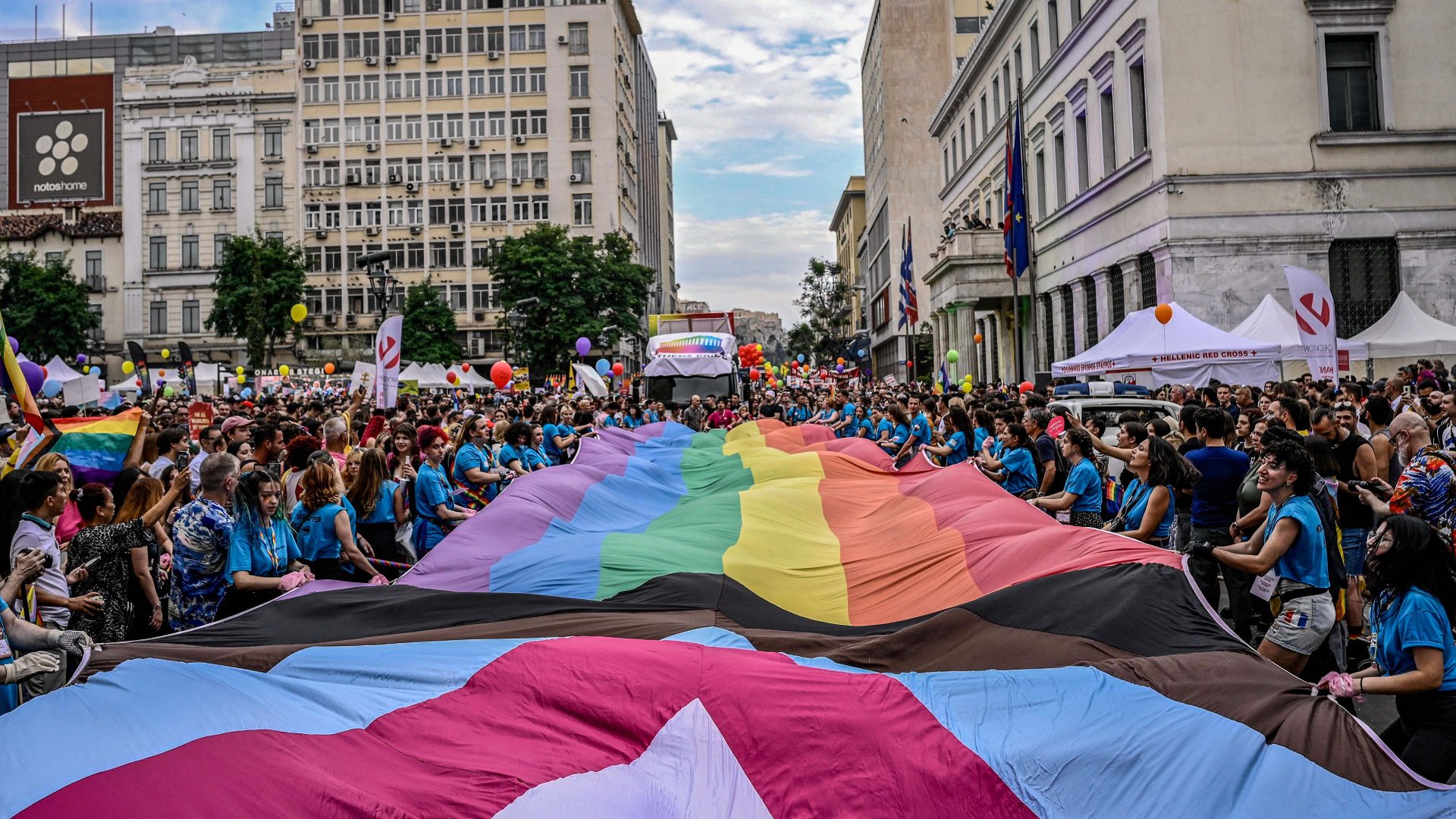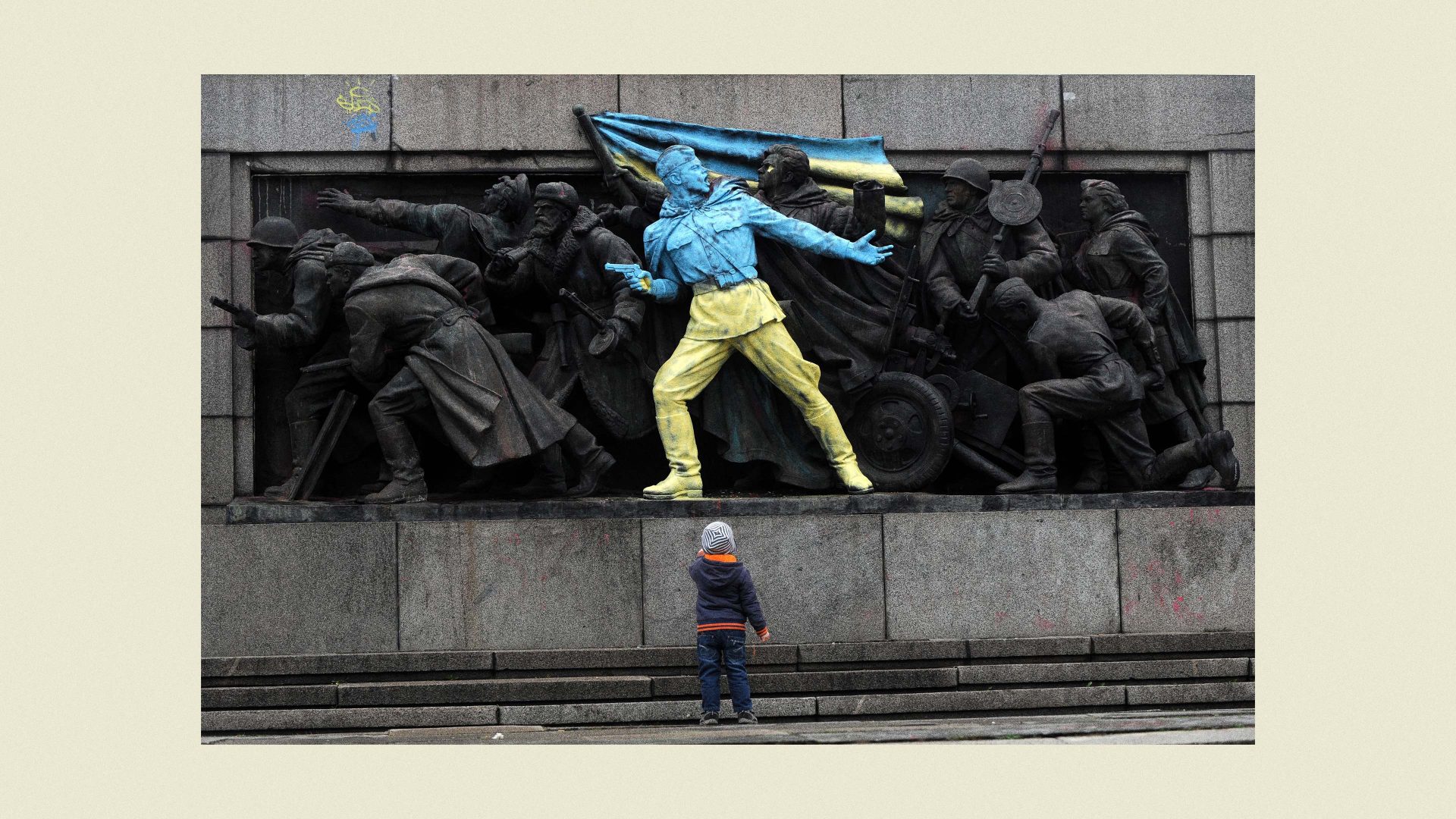Sodade2, a popular Athenian gay club, recently had a particularly busy night. Earlier in the day, the Greek parliament had passed new legislation allowing same-sex marriage, and crowds flocked to the bar to celebrate. Among them was Stefanos Kasselakis, head of Syriza, the opposition party, and the only openly gay politician to lead a Greek party. Cameras flashed as he danced to Katy Perry’s Firework with his husband, Tyler McBeth, whom he wed in New York last year. “From now on, we move forward with modern society, modern Greece,” he announced into a microphone, punching the air.
The bill was passed after two days of vigorous debate – the 300 MPs voted 176 in favour, 76 against. Leading the charge was the prime minister, Kyriakos Mitsotakis, who had vowed to pass the new measures after his landslide re-election in June. Despite roughly a third of his centre-right New Democracy party abstaining or voting against the bill, in a rare show of cross-party support Mitsotakis managed to pass the legislation with the aid of three leftist opposition parties, including Syriza. “This is a milestone for human rights, reflecting today’s Greece – a progressive and democratic country, passionately committed to European values,” Mitsotakis wrote on X/Twitter.
As well as allowing same-sex marriage, the legislation gives gay couples the right to adopt, and grants the same rights to both parents as a child’s legal guardian. While it was a landmark victory for the country’s LGBTQ community, critics pointed out the shortcomings of the new law, most notably that it doesn’t include the recognition of trans parenthood, and same-sex couples still won’t be able access surrogate services. Despite his support for the bill, Kasselakis has previously described the law as “imperfect” and has announced his own plans to have children via a surrogate – presumably in the US.
The new law makes Greece the first Orthodox nation to allow gay marriage, and the news has stirred vehement opposition from the church. The Holy Synod, the Greek Orthodox Church’s highest authority, wrote a letter to lawmakers describing how the legislation “abolishes fatherhood and motherhood, neutralises the sexes”. The weekend before the law was passed, about 4,000 protesters had congregated in Syntagma Square in Athens to denounce the proposal. Among them were robed priests and supporters of the far-right Niki party, waving Greek flags and brandishing banners decrying same-sex parenthood. There’s been a steep rise in homophobic attacks over recent weeks, as well as calls to gay support hotlines.
“Of course I feel positive about the news,” said a friend who counts himself as a proud member of the Athens LGBTQ community. “But over the past few months, while the issue has been discussed in parliament, we’ve heard a lot of violent talk on the street. Once again, we’ve seen hate speech casually accepted in parliament. It was a reminder of the strength we had to find for ourselves in order to survive in a society like Greece’s, which is deeply homophobic.”
Kyriakos, he believes, is using the legislation to distract from the many ways Greece lags other EU nations. “The day after the legislation was passed, a man killed his wife in Crete. And there’s still no legal recognition in the penal code of the term ‘femicide,’” he explains. “There’s also a high level of poverty here, and a soaring cost of living. There are many things that are being hidden behind this supposed progressiveness. But Kyriakos wants to prove that he’s a modern, liberal prime minister. That’s why he insisted so much on the legislation, even though much of his party didn’t vote for it.”



